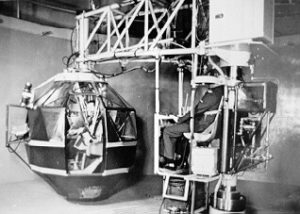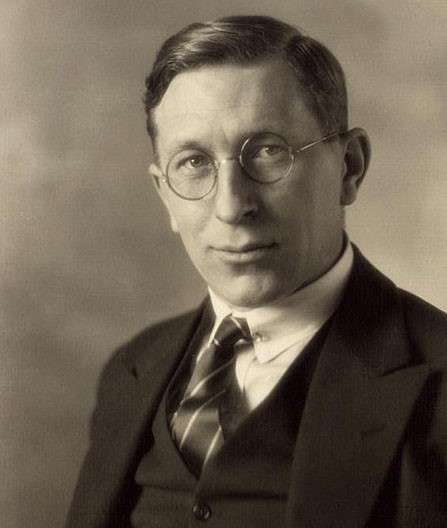Major Sir Frederick Grant Banting, MC, was born on November 14, 1891, at Alliston, ON. Educated at the Public and High Schools at Alliston, he later went to the University of Toronto to study divinity, but soon transferred to the study of medicine. In 1916 he took his M.B. degree and at once joined the Canadian Army Medical Corps, and served, during the First World War, in France. In 1918 he was wounded at the battle of Cambrai and in 1919 he was awarded the Military Cross for heroism under fire.
While primarily know for the discovery of insulin, Banting’s interest in aviation medicine resulted in his participation with the Royal Canadian Air Force (RCAF) in research concerning the physiological problems encountered by pilots operating high-altitude combat aircraft. Banting headed the RCAF’s Number 1 Clinical Investigation Unit (CIU), which was housed in a secret facility on the grounds of the former Eglinton Hunt Club in Toronto.

Figure: Human Centrifuge at DCIAM, Toronto
During the Second World War, he investigated the problems of aviators, such as “blackout” (syncope). He also helped Wilbur Franks with the invention of the G-suit to stop pilots from blacking out when they were subjected to g-forces while turning or diving. Another of Banting’s projects during the Second World War involved using and treating mustard gas burns. Banting even tested the gas and antidotes on himself to see if they were effective.


Recent Comments